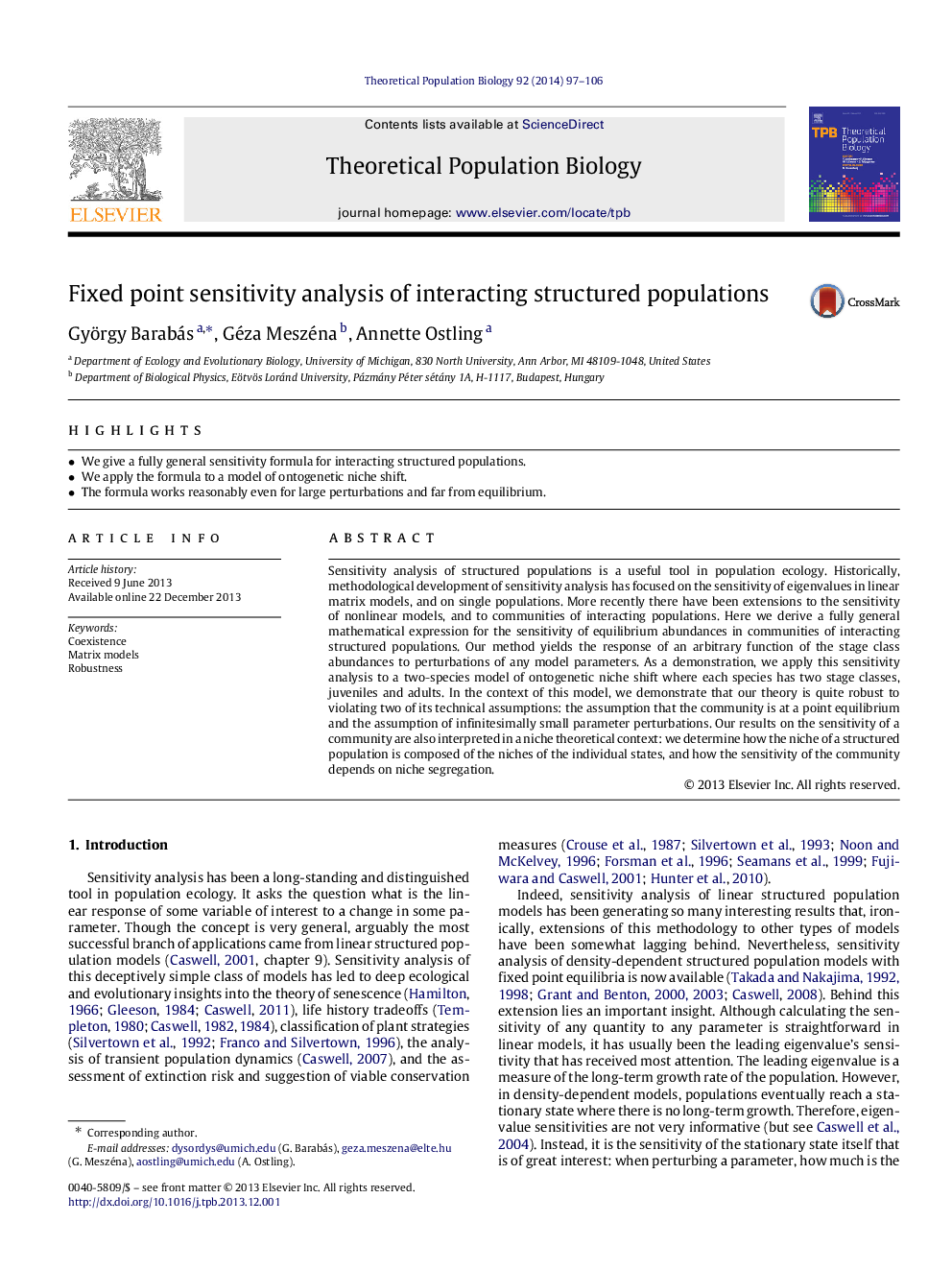| Article ID | Journal | Published Year | Pages | File Type |
|---|---|---|---|---|
| 6372384 | Theoretical Population Biology | 2014 | 10 Pages |
Abstract
Sensitivity analysis of structured populations is a useful tool in population ecology. Historically, methodological development of sensitivity analysis has focused on the sensitivity of eigenvalues in linear matrix models, and on single populations. More recently there have been extensions to the sensitivity of nonlinear models, and to communities of interacting populations. Here we derive a fully general mathematical expression for the sensitivity of equilibrium abundances in communities of interacting structured populations. Our method yields the response of an arbitrary function of the stage class abundances to perturbations of any model parameters. As a demonstration, we apply this sensitivity analysis to a two-species model of ontogenetic niche shift where each species has two stage classes, juveniles and adults. In the context of this model, we demonstrate that our theory is quite robust to violating two of its technical assumptions: the assumption that the community is at a point equilibrium and the assumption of infinitesimally small parameter perturbations. Our results on the sensitivity of a community are also interpreted in a niche theoretical context: we determine how the niche of a structured population is composed of the niches of the individual states, and how the sensitivity of the community depends on niche segregation.
Keywords
Related Topics
Life Sciences
Agricultural and Biological Sciences
Agricultural and Biological Sciences (General)
Authors
György Barabás, Géza Meszéna, Annette Ostling,
